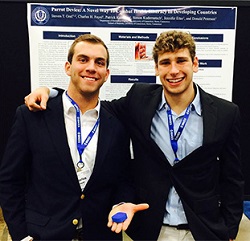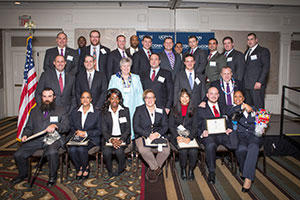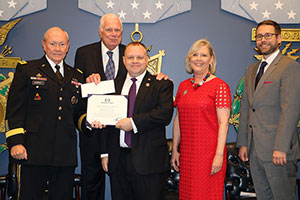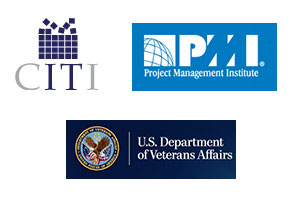The Canary in the Coal Mine for Veteran’s Disability Compensation
On August 7th, 2014, the Congressional Budget Office released a report entitled,Veterans’ Disability Compensation: Trends and Policy Options. The ranking member of the House Veterans Affairs Committee (HVAC), Rep Mike Michaud (D-ME) requested the report. The purpose of the report is to develop proposals to reduce payments for disability compensation for veterans, in response to “budgetary pressures.” The report itself is incomplete – amazingly, absent from the CBO report’s proposals is “Don’t enter into long-term wars of aggression under false pretenses” – that is the first way to reduce disability compensation payments. Curiously, the CBO does not offer as a way to pay for the disability compensation of disabled veterans repealing the Bush tax cuts of 2001, and 2003, which cost the country more than $2.2 trillion in tax revenues from the wealthiest people in the country. In truth, there are no budgetary pressures; there are only political pressures from constituents who don’t want to pay for the sacrifices of veterans who fought for their freedom and to defend the Constitution.
The report begins with a summary of how veterans disability benefits payments have changed since 2000. To wit, the report mentions that the number of veterans receiving disability benefits from the Veterans Benefits Administration (VBA) has increased from 2.3 million to 3.5 million, while disability compensation payments have increased from $20 billion per year in 2000 to $57 billion per year in 2013. Although the report recognizes that our nation has been at war in two countries for more than a decade, the report fails to correlate the increase in disability benefits to the actual increase in veterans of the wars in Iraq and Afghanistan accessing the Veterans Administration system for health care, and applying for disability benefits; or to the severity of disabling conditions those veterans with which those veterans are returning.
The non-partisan veterans advocacy group Veterans for Common Sense did a Freedom of Information Act for the quarter ended on March 31st, 2014. As of that date, more than 2.6 million Americans have served in Iraq and Afghanistan from 2001. More than 2 million are in the VA system, and more than 1 million have sought healthcare through the VA. Of the more than 1 million veterans seeking healthcare, more than 969,000 have filed claims, more than 890,000 claims have been adjudicated, more than 875,000 have a service-connected disability, and finally, more than 816,000 are receiving disability benefit compensation.
A casual back-of-the-envelope calculation will show that the VBA has increased its rolls by 1.2 million. A second casual back-of-the-envelope calculation will show that nearly 75% of the increase of veterans receiving disability benefits are veterans of the so-called Global War on Terror. The VA has a demographic projection that the veteran population in the US will decline by 33% by 2040 to 15 million from a current 22 million total. This is an important consideration when the CBO proposes implementing a “statute of limitations” on submitting a disability claim, or implementing a lifetime cap on disability compensation.
This report comes at a most inauspicious time. In the very recent past, Secretary of the VA General Eric Shinseki was forced to resign over the ongoing scandal that has engulfed the agency. Indeed, this recent article at the National Journal “The VA Scandal Just Keeps Spreading,” shows that the scandal is systemic, that more than 100,000 veterans have been systemically denied access to healthcare without due process in violation of their constitutional rights per the 9th Circuit Court decision, and veterans are dying while waiting for healthcare.
The optics of this report are terrible. In February 2014, Republicans in the Senate filibustered the Veterans Omnibus Bill, effectively killing it, despite the bill being endorsed by 20 major veterans organizations. The bill would have cost $21 billion over 10 years, and provided for infrastructure improvements, opening new Vets centers, and hiring healthcare professionals and staff. In attempting to justify their “no” votes, Senator Richard Burr (R-NC) of the Senate Veterans Affairs Committee said “That is more money we were going to spend that we haven’t spent, that we never had because we were borrowing it.”
Then the scandal broke in the spring, and the politicians scrambled to do something. They resurrected the Veterans Omnibus Bill, re-named it the Sanders-McCain Veterans Bill, and passed it in June. Three republican senators voted against, it, Bob Corkey (R-TN), Ron Johnson (R-WI), and Jeff Sessions (R-AL). Senator Sessions (R-AL) put the cost-benefit analysis explicitly, “I feel strongly we’ve got to do the right thing for our veterans. But I don’t think we should create a blank check, an unlimited entitlement program.” The bill was passed by the HVAC and the House – their last vote prior to the August recess – and signed into law by President Obama on Aug 7th – interestingly, the same day the CBO report was released.
Virtually at the same time, the Iraqi Army has collapsed, in the face of the onslaught by the terrorist organization ISIS; and an Afghan soldier murdered the US Army major general who responsible for the training of Afghan security forces. Former President Bush stated his gambit for winning the wars in Iraq and Afghanistan “And that is why we are on the offense. And as we pursue the terrorists, our military is helping to train Iraqi security forces so that they can defend their people and fight the enemy on their own. Our strategy can be summed up this way: As the Iraqis stand up, we will stand down.”
These events may appear to be unconnected, but to the contrary, they are profoundly connected. This series of events is a twin scandal and crisis. First, our country’s leadership manifests a failure of political will to win wars. Our elected politicians have essentially come up with a way to “outsource” winning wars to third country labor, similar to corporations that outsource manufacturing to lowest-cost labor countries; this is politically palatable to the electorate and creates political capital for the politician to be re-elected as a “war-time” politician. At the same time, no one has questioned the risk involved in trusting our nation’s geopolitical strategic interests with non-American troops whose motivations and interests are very very different from our own. In short, trusting third-country national troops to fight and win our wars is a recipe not just for losing, but for disaster. It was a failure in Viet Nam, it is a failure in Iraq, and it is failing in Afghanistan.
Secondly, and at the same time, those same politicians now express a failure to live up to President Lincoln’s words in his 2nd Inaugural address, which have since become the VA’s motto “to care for him who shall have borne the battle and for his widow, and his orphan.” Without the Bush doctrine, there would be no Iraq war, and there would be no strategy ‘as they stand up, we will stand down.” Had the American electorate been told the truth about the wars, hundreds of thousands of Americans and American families would not now be living with the long-term health effects of disabilities incurred as a result of service in Iraq and Afghanistan. The Iraq war has been estimated to cost $3 trillion dollars (this just happens to be the same amount the Bush tax cuts cost us) by the Nobel-prize winning economist, Joseph Stiglitz and economist Linda Bilmes. If the VA is fully funded every year, for the next fifty years, the cost for caring for the veterans of Iraq and Afghanistan will be $1 trillion a decade for the next five decades. To add insult to injury, recent reports from the University of Minnesota and from Feeding America, show that 28% of veterans and military families now rely on food assistance programs; while at the same time, the HVAC is asking for, and the CBO is offering policy proposals to reduce disability compensation payments.
Put it all together, and our nation is in real trouble. Our politicians no longer have the political courage to win wars, no longer have the will to pay for the care of veterans of our wars, and have inoculated the rest of the country from the true cost of war. Outsourcing wars, training foreign armies to fight our wars, refusing to pay the healthcare and disability costs of the veterans of those wars, shielding the 99% of civilian population from the costs of war for political efficacy is a recipe for disaster. It is a recipe for empire. It is a recipe for perpetual war.
The CBO report is the canary in the coal mine. They are looking for ways to reduce the costs of caring for veterans with disabilities who served in the longest wars our nation has fought, in Iraq and Afghanistan. As the military downsizes through 2020, and more than 1 million veterans leave active service by the end of the decade, the politicians will continue to try to find ways to “respond to budgetary pressures” by taking out those pressures on the less than 1% of Americans, fewer than 3 million total, who served and sacrificed for more than 310 million American citizens. Politicians have come up with a way to outsource wars and build political capital with the American electorate, and effectively inoculate the American taxpayer from the true costs of the war. As well, this toxic combination combines to create a disincentive for Americans to take the oath of service. There is no upside if our nation’s politicians consider veterans usable assets, and once the veteran is no longer military useful, veterans are on their own for any disabilities that they may suffer in combat.
All Americans should agree that it is morally wrong and a betrayal of the social and legal obligation that the nation has to its veterans, to respond to “budgetary pressures” on the backs of the less than 1% of Americans who have served and sacrificed in defense of the Constitution. George Washington wrote in 1781 to the first governor of CT Jonathan Trumbull, “Permit me Sir to add, that Policy alone in our Present Circumstances, seem to demand that every Satisfaction which can reasonably be requested, should be given to those Veteran Troops who, ‘thro almost every Distress, have been so long and so faithfully serving the States . . .” That intent remains as fresh and immediate today, in light of the present VA scandal and the explicitly stated unwillingness to pay for veterans disability benefits, as when it was written. Service in defense of the Constitution is special. Veterans are truly the best and brightest our nation has to offer in its defense. There is no such thing as budgetary pressure, only what our nation is willing to pay for, and what it’s not willing to pay for. If our nation is not willing to pay for veterans, this two-centuries-old experiment in democracy will not last.



